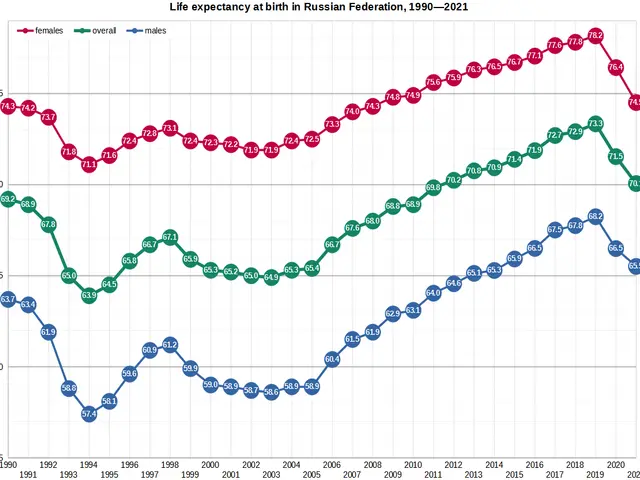Banking titan, Bank of America, faces a hefty fine of $540 million after being accused of excessive risk-taking in a lawsuit brought by the Federal Deposit Insurance Corporation (FDIC).
In a long-running legal dispute, the Federal Deposit Insurance Corporation (FDIC) has ordered Bank of America to pay $540.3 million for underpaying deposit insurance obligations. The decision, made public on Monday, follows years of disagreements over the bank's reporting and premium payment practices.
The basis of the dispute stems from the FDIC's claim that Bank of America did not accurately report certain types of deposit accounts, leading to underfunding of the Deposit Insurance Fund (DIF). The FDIC alleges that the bank underpaid insurance premiums over a substantial period, a claim Bank of America has challenged on grounds of the rule's unclarity and the FDIC's violation of the Administrative Procedure Act in adopting the rule.
The order, signed on March 31, does not include the $1.12 billion in additional assessments the FDIC sought. This amount represents profits the regulator claims Bank of America earned by not paying required premiums. The bank was only required to pay the initial $540.3 million.
Bank of America has been working to ensure it can serve clients well and not have to pull back, even in more challenging economic conditions. The bank's CEO, Brian Moynihan, emphasized the bank's credit risk profile's strength to withstand more challenging economic conditions.
This dispute highlights core issues about regulatory authority, bank reporting, and insurance premium calculations within the U.S. deposit insurance system. The broader implications of this case exemplify tensions between banks and regulators over financial obligations tied to deposit insurance, particularly amid evolving banking practices and regulatory scrutiny.
The legal fight between the bank and the FDIC over unpaid premiums dates back to 2017. The bank declined to comment on whether it might appeal the ruling.
Bank of America has reserves set aside to cover the decision, but the higher litigation costs in the first quarter were due to this recent decision in the long-running matter. The bank's first-quarter non-interest expenses totaled $17.8 billion, a 6% increase from the previous quarter, primarily due to increased litigation costs.
[1] Federal Deposit Insurance Corporation (FDIC) [2] President Trump's 2025 "Fair Banking" Executive Order [3] Regulatory scrutiny over bank compliance with statutory obligations [4] Deposit Insurance Fund (DIF) [5] Bank reporting and premium payment practices [6] Complex calculations about which deposits qualify as insured and the applicable premium rates
Read also:
- Discussion on WardsAuto Podcast: Tariffs, Failed Merger, and Ford's Quality Issues
- High-Priced 2026 Corvette ZR1X Emerges as Budget Option in Supercar Sphere
- Top racer claims Corvette ZR1 might have shaved an additional 10 seconds off its record-setting lap time at Nurburgring
- Determining the Fate of Underground Water Reserves








